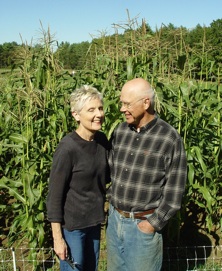

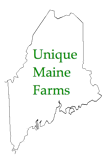

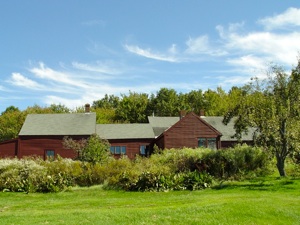
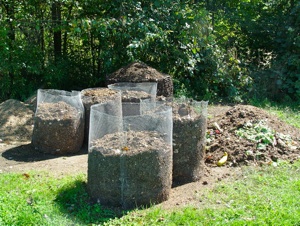
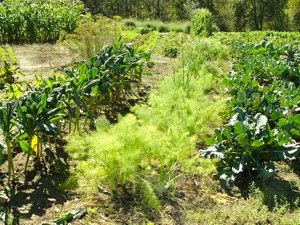
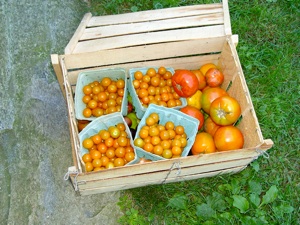
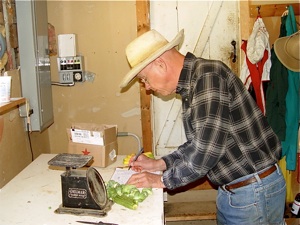
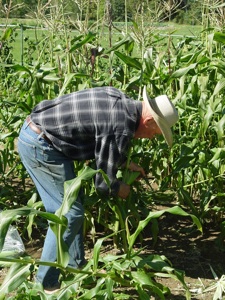
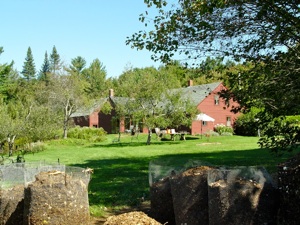
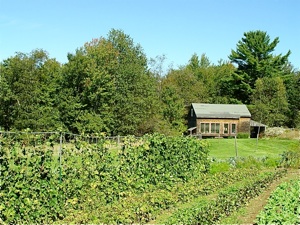
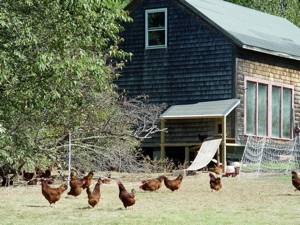
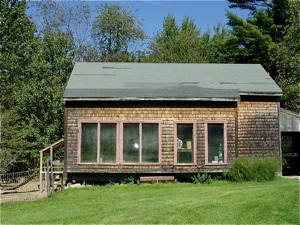



Name: Mort and Barbara Mather
Easter Orchard Farm
Address: 802 Bald Hill Road
Wells, Maine 04090
Website: www.joshuas.biz
Email: mmather@maine.rr.com
Phone: 207-646-7177
Products and Services:
-MOFGA Organic Certified Products
-supplies herbs, vegetables to Joshua’s Restaurant
-organic gardening expertise
-Gardening for Independence
-How To Improve Your Life and Save the World
-Taking Care of Mom
What Makes Easter Orchard Farm Unique?
Over thirty years ago, Mort and Barbara Mather
of Easter Orchard Farm wrote a book about homesteading in Maine that was entitled Gardening for Independence. It was an informative and captivating account of their first years of living off the land and their belief in the value of organic gardening. Although the book was first published in 1978, the advice that was shared back then is still very meaningful and timely.
The Mathers seem to have a history at being
at the forefront of significant happenings. When
the York County Chapter of the Maine Organic Foods Association (later the Maine Organic Farmers and Gardeners Association- MOFGA) held their first meeting in Kennebunk, Mort and Barbara Mather were there. Mort accepted the job of treasurer at the first annual meeting of MOFGA, and the Mathers were one of the first certified organic gardeners in the state of Maine. For three terms, Mort Mather served as President of MOFGA - in 1974, and then again in 1982, and 1983. The newsletter that preceded The Maine Organic Farmer and Gardener, was assembled on the Mathers‘ kitchen table. It became the paper that it is today in 1974. That same year, Mort also was instrumental in the “Healthy Plants in a Healthy Soil” exhibit that premiered at the Maine Agricultural Trades Show.
Two highly-popular attractions at the Common Ground Fair can be attributed to Mort’s creativity and interest in hosting some fun-loving activities. He created the Harry S. Truman Manure Pitching Contest at the second Common Ground Fair in Litchfield in 1978. At that time there were four competitions - garden spread, farm spread, distance and accuracy, and basket pitch. He was also responsible for the Tipsy Ladder which proved to be a source of great entertainment for many of the young fairgoers. It took quite a bit of practice and dexterity for children to be able to climb the wavering structure. Luckily, a bed of hay awaited any of the climbers who ended up falling off!
Growing vegetables exclusively for just one market, as Mort is doing today, is certainly not representative of their early years of farming. In the 1970’s and 1980’s, Mort traveled from Ogunquit to Portland, with young son Josh in tow, delivering organic vegetables and baked goods to kitchens of various restaurants and to several different markets. Pigs, chickens, and a beef critter were raised at their farm. Mort explained how, at that time, they were subsistent farmers who were growing most of their own food including wheat; raising two young children; and living below the poverty level and loving it. Their livelihood was centered around their one-acre market garden and their home baking business. Barbara created an out-of-this-world chocolate fudge pie that immediately developed a cult following.
The Mathers often bartered for various goods and services. The delivery of their son, Josh, by a local doctor, took place in exchange for a cord of wood! Where money was required (utilities, insurance, and taxes) Mort signed on for various jobs such as tending bar and freelance writing, Barbara did odd jobs including cleaning kennels. Mort explained, “We did what we had to do to get by.”
Although their farm work always occupied a large part of their time, Mort and Barbara found time for other interests. Mort wrote a weekly garden column for the local paper, and, when Joshua and Caitlin were older, Barbara joined a theatre group. (Mort and Barbara were both theatre majors in college and met at the Ogunquit Playhouse where Mort was stage manager and Barbara was property mistress). When Barbara’s mother died, she wrote Taking Care of Mom - http://mortmather.com/mom/index.htm -a performance piece about elder care which she performed in Portland and Bennington, Vermont.
Mort became a writer with the purpose of promoting MOFGA. He went to the York County Coast Star hat in hand offering to write a garden column. When told he would receive twenty-five cents an inch, he was ecstatic. He wrote that column for twenty years and has written two books -Gardening for Independence and How To Improve Your Life and Save the World, several essays, and many gardening columns for Mother Earth News, Countryside, Organic Gardening, and the York County Coast Star.
The preservation of natural resources and farmland remain top priorities in the Mathers’ lives. Mort was the director of an organization that prevented the establishment of an oil refinery in Maine. He worked for the Farms for the Future project and has served as a consultant for several environmental projects. Mort also founded the Ogunquit Playhouse Foundation which saved the Playhouse from development.
Mort Mather and Ruth Howard worked tirelessly in the 1970’s to see that Laudholm Farm, a saltwater farm in Wells, was saved from development. They proved instrumental in the foundation of Laudholm Trust and Mort served as President of the organization for thirteen years. Laudholm Farm is now known as the home of the Wells National Estuarine Research Reserve. The Mather Auditorium at Laudholm Farm is named after him. Mort also served as a volunteer on the Wells Planning Board for ten years.
When one visits Easter Orchard Farm, the quality of the farm operation is immediately apparent. The several gardens all appear vibrant, in order, and thoughtfully arranged. There are fruit trees, flower gardens, and an attractive landscape design. Mort raises about sixty Rhode Island Reds in a deluxe chicken house that rivals any other with its large windows and airy feel.
The grounds at the Mathers’ farm weren’t always so manicured and the property was not always the showpiece that it is today. A great deal of effort went into transforming Easter Orchard Farm to this model of organic excellence. Although the property looks like it could be featured in a nationally-recognized home and garden magazine, it didn’t become the place it is without a great deal of trial and experimentation. There have been challenges such as loss of plants to deer, wild turkeys, porcupines and other varmints. And, of course, there are always the pesky insects such as the cutworms, squash bugs, potato beetles and cucumber beetles that can wreak havoc on the crops. Weeding, composting, and cultivating are time-consuming undertakings. When Unique Maine Farms visited the farm this past September, Mort was tending to various garden chores in the fashion that he has always preferred -without any shoes!
Mort explained that the hard farm work has always been worth the effort because he truly loves what he is doing. His gardens are heavily mulched with several inches of grass clippings and he is a long-time advocate of incorporating homemade organic compost into his soil. A proponent of “The Ten Day Rule,” when a crop is planted, the calendar is marked to make cultivating that crop, the top priority in ten days. From his first market garden he learned that “rescue weeding” was just a waste of time. It took several more years to learn that hoeing weeds that were an inch or more tall was more work and less effective that hoeing weeds that had just sprouted (ten days).
Although the garden is geared towards one restaurant account, that does not restrict in any way the idea of growing the same vegetables and herbs with the same methods each year. Mort is always introducing changes in their gardens. He evaluates production levels and experiments with various methods of succession plantings. Crop rotation is always paramount in his plans.
To instill a love for gardening in his children, Mort put aside a patch for each and helped them plant the area. Caitlin loved cucumbers so he helped her plant a hill of cucumbers. The idea was that they should care for their patches and watch them grow. Mort ended up seeing to it that the patches would produce so that they could see fruit from their “labor.” Mort chuckled when he shared how, in those days, the interest of their young son, Josh, revolved around finding out when the peas were ready. Mort jokingly called him their “pea meter!” Well, Josh is certainly doing a lot more than waiting for the peas these days. He is a hard-working executive chef and owner of Joshua’s Restaurant and Bar on Route One in Wells.
Joshua’s is a family-run operation that has earned a reputation of excellence. The seventy-five-seat restaurant is open year-round. It has received phenomenal reviews for its quality homemade food, superior service, and its focus on organic Maine-grown vegetables and herbs. Easter Orchard Farm supplies the majority of the organic vegetables used at the restaurant, but Josh also orders additional produce and fresh foods from various Maine farms. He makes several types of homemade bread and desserts each day including the infamous fudge pie and ice cream from scratch. He and his assistant chefs also make the dressings, stocks, sauces, and pasta in-house.
Joshua’s Restaurant and Bar is situated in the historic colonial home that was built by Samuel Curtis in 1774. Guests enjoy the intimate atmosphere and the distinctive photography and art work that represents an eclectic group of local artists. Mort and Barbara Mather take an active role in the operation of the restaurant. In addition to helping out with the purchase and renovation of the building, Barbara is the dining room manager and Mort is the bookkeeper.
While other farms in Maine may also grow specifically for restaurants, Easter Orchard Farm stands out for the special relationship with Joshua’s. Father and son - farmer and chef- work well together figuring out what each needs to make the trip from field to table as smooth as possible. Mort provides Josh with fresh organic eggs, vegetables, and herbs, and Josh, in turn, provides the farm with a supply of materials from his restaurant for their compost operation such as their compost operation such as the vegetable skins, fruit peelings, eggs shells, fish scraps, etc.
Easter Orchard Farm is an excellent example of
the mutually beneficial arrangement that is possible when a farm and a restaurant pool their resources and efforts to provide award-winning organic fare to guests. If you asked Mort and Barbara Mather when they wrote Gardening for Independence, if they could ever predict that they would be immersed in the operation of their son’s restaurant thirty years down the road, one might wonder if they are truly surprised. Josh indicated on his restaurant’s website that he always dreamed of owning a restaurant. In actuality, in their present roles, Mort and Barbara Mather have really not deviated at all from their original core beliefs in organic gardening and the support of the local farm economy.
Gardening for Independence is still available for sale at Amazon or from Mort and Barbara Mather. Thirty years have gone by since it was first published. Unique Maine Farms accessed one of the two copies that circulate at the Goodall Library in Sanford. Both copies had shown a great deal of use. It’s quite a testament to Mort and Barbara Mather that a book that they wrote in 1978, on organic farming is still highly-regarded three decades later.
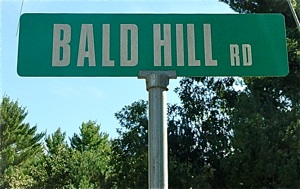





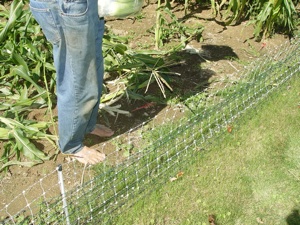
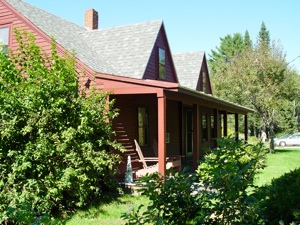
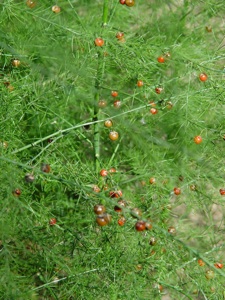


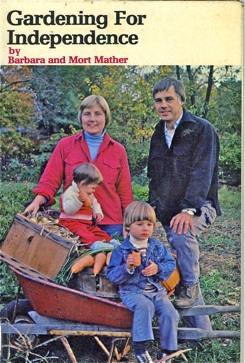
Barbara and Mort Mather
Mort does not wear shoes while gardening.

